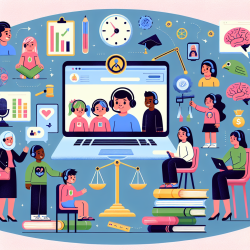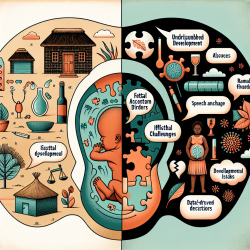Introduction
In today's rapidly evolving educational landscape, special education advocacy groups play a pivotal role in ensuring that children with unique needs receive the support they deserve. Yet, many feel lost navigating the complexities of speech therapy staffing and the provision of consistent, quality therapy services. At TinyEYE, we believe that growing knowledge and informed decision-making can empower these groups to make a significant difference in children's lives.
The Challenge of Speech Therapy Staffing
Staffing for speech therapy in schools has always been a challenge. The demand for qualified speech-language pathologists (SLPs) often outpaces supply, leaving many schools struggling to provide adequate services. This gap can lead to inconsistent therapy sessions, which may hinder a child's progress. Advocacy groups are essential in highlighting these issues and pushing for solutions that ensure every child has access to the services they need.
Online Therapy: A Game Changer
Online therapy services, like those offered by TinyEYE, present a viable solution to the staffing challenges faced by schools. By leveraging technology, we can connect children with qualified therapists regardless of geographical barriers. This approach not only helps in addressing staffing shortages but also ensures that therapy is consistent and tailored to each child's needs.
Data-Driven Decisions for Better Outcomes
At TinyEYE, we are committed to data-driven decisions that enhance therapy outcomes. Our platform allows for the collection and analysis of detailed data on therapy sessions, enabling us to track progress and adjust interventions as needed. This ensures that each child receives the most effective therapy possible, maximizing their potential for success.
Empowering Advocacy Groups
Special education advocacy groups can leverage the benefits of online therapy to better support the children they serve. By understanding the advantages of online platforms, such as increased access to qualified therapists and data-driven insights, these groups can advocate more effectively for resources and policies that support innovative therapy solutions.
Conclusion
Informed advocacy is powerful advocacy. By embracing the possibilities of online therapy and using data to drive decisions, special education advocacy groups can play a crucial role in ensuring that every child receives the speech therapy services they need. Together, we can transform the landscape of special education and create brighter futures for children everywhere.










